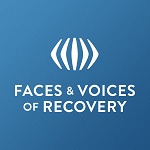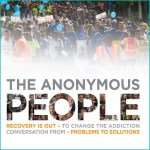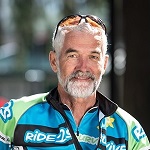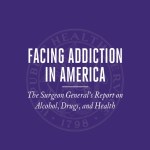This post was originally published on this site
By Ray B. MD
Hi. I’m Ray, long-timer in addiction recovery and professional educator, disseminating information on the growing body of research evidence supporting recovery management, recovery-oriented care and peer-supported community recovery. I am privately an active member of a 12-Step home group while publicly a vigorous advocate for a range of recovery-supporting resources including 12-Step programs. The relatively recent Cochrane meta-analysis showing AA to be at least as effective as any other treatment modality [1] has been helpful, but even high-quality evidence such as this has had little effect on substance use and addiction policy and spending by legislators.
During over three decades of recovery I have also benefited from a variety of non-12-Step recovery therapies and programs. More than most of my medical colleagues, I know the powerful therapeutic benefits of active involvement in 12-Step fellowship and the many therapeutic components embedded within the 12-Step program of recovery. I am also painfully aware of some of the less-than-perfect aspects of 12-Step organizations, gleefully pointed out by some of my more critical mental health and medical colleagues. Having said that, AA is like democracy or the Canadian banking system: far from perfect but, considering all the options, it appears to be the best available alternative.
The tradition of anonymity is an essential one for the survival of an autonomous, non-hierarchal, non-professionalized organization like AA. Its public image or brand needs to be protected from the potential harm of people using their status as 12-Steppers to promote themselves or their commercial interests. It is not uncommon for newly sober members, fueled by their pink-cloud grandiosity, to appear in the media calling attention to themselves joyfully broadcasting the virtues of our program. And then, just as publicly, they come crashing down in humiliating relapse harming both themselves and the program. This lends credence to the erroneous view of addiction or alcoholism as a hopelessly relapsing problem akin to the Greek myth of Sisyphus, doomed to endlessly push his stupid boulder up the hill only to have it roll back down.
It has long been obvious in my medical practice, comparing addiction to the other chronic complex multifactorial lifestyle disorders such as heart disease, diabetes, obesity, hypertension and many types of  cancer, that addiction deserves equal status. Addiction and these other chronic diseases share common characteristics: biological, environmental and behavioural risk factors; gradual and varied progression; variable response to multiple treatment modalities; and, since they are chronic, treatment at best results in remission but without continuing care and significant lifestyle modifications, relapse is likely. But, more important, 40 years of treating patients with all of these common medical conditions has made it clear that addiction, including its manifestation as alcoholism or ‘alcohol use disorder’, is the disease with the best prognosis [2] of them all.
cancer, that addiction deserves equal status. Addiction and these other chronic diseases share common characteristics: biological, environmental and behavioural risk factors; gradual and varied progression; variable response to multiple treatment modalities; and, since they are chronic, treatment at best results in remission but without continuing care and significant lifestyle modifications, relapse is likely. But, more important, 40 years of treating patients with all of these common medical conditions has made it clear that addiction, including its manifestation as alcoholism or ‘alcohol use disorder’, is the disease with the best prognosis [2] of them all.
During the ongoing tragedy of the opioid overdose epidemic, the remarkable and achievable outcome of sustained recovery seems to have been overlooked. A big part of the problem is that we have been achieving these remarkable transformations in ourselves and fellow addicts and alcoholics tucked away in our communities of recovery, behind the veil of anonymity, far from academia, research and professional clinicians. So what if people, ‘the Normies’, don’t know about our often-miraculous turnarounds? The problem is they don’t know we are here, all around them, living in their neighbourhoods, working, volunteering, parenting and voting. They think they know the face of addiction. They see it in the news, in the tent cities and on the streets of our cities. Little wonder they have nearly given up on finding a solution beyond supplying addicts with less toxic drugs and safer ways to use them, calling that treatment.
Are there enough of us in recovery to make a difference? Epidemiological population surveys of the quality used to survey other health conditions indicate that somewhere around 9% of Americans and by logical assumption Canadians as well, once experienced sufficient symptoms to meet the diagnostic criteria for a substance use disorder or addiction, but no longer do [3]. That’s over twenty million Americans and two million Canadians in recovery! And here’s where it gets really interesting – by far the majority of these sober folks got well without formal treatment, many without attending mutual support groups like AA. Large cross-sectional research studies on this population subgroup, the Life in Recovery Surveys, performed in the US, Australia, the UK and Canada have produced strikingly similar results. In spite of our past histories of legal problems, family problems, work problems as well as medical and psychiatric complications due to addiction and its associated dysfunctional behaviours, once in recovery we become law abiding tax-paying citizens, reliable and productive employees and healthy people who are no longer a burden to the system. And we vote.
OK, so now we know we are a huge and healthy group of productive citizens. The kind of group any savvy politician would want to please. So why is recovery still so low on the political agenda?
When I was about 20 years sober I had a health scare forcing me off the couch (and away from my favourite junk food) and into jogging. As a person for whom moderation is not a natural state, one thing led to another and in a few years, I found myself running the Boston Marathon every year – 8 times to be exact. And every year along the 26-mile course from Hopkinton to Boston I’d be cheered on by tens of thousands of enthusiastic spectators, many of them wearing costumes and holding banners to show support for athletes wearing the same logos, raising money and awareness for chronic diseases, like cancer, stroke, diabetes and heart disease. But I didn’t see any costumes, banners or cheerleaders dedicated to addiction and recovery. Why not?
Addiction is the third most common cause of morbidity and mortality [4] and a huge driver of healthcare, social, vocational and legal system costs! What’s more, if the public, policy makers and legislators only knew what we survivors know, they’d realize that solutions to the massive substance use and addiction problem are available and effective. If we only did the public marketing of effective recovery-oriented treatment and community support programs and scaled them up to meet the massive needs out there it would make a huge difference.
 During the last 25 years the grassroots Recovery Movement has cautiously begun to leave the closet of anonymity with the formation of organizations like Faces & Voices of Recovery [5] and the production and release of high-quality documentaries like The Anonymous People [6]. This has attracted the attention of some influential people, resulting in pressure on the US Federal Government as well as some State and municipal legislators in a few regions to begin funding and developing supportive legislation to encourage growth of communities of recovery in what has come to be
During the last 25 years the grassroots Recovery Movement has cautiously begun to leave the closet of anonymity with the formation of organizations like Faces & Voices of Recovery [5] and the production and release of high-quality documentaries like The Anonymous People [6]. This has attracted the attention of some influential people, resulting in pressure on the US Federal Government as well as some State and municipal legislators in a few regions to begin funding and developing supportive legislation to encourage growth of communities of recovery in what has come to be  called, at least for now, the Recovery Oriented System of Care. Still, for the most part, we remain in our closets. But when we hide our recoveries we perpetuate the wrongheaded idea of addiction as a hopeless weakness, a character defect, simple bad behaviour. In other words addiction and recovery is our shared shameful secret – and that fuels stigma.
called, at least for now, the Recovery Oriented System of Care. Still, for the most part, we remain in our closets. But when we hide our recoveries we perpetuate the wrongheaded idea of addiction as a hopeless weakness, a character defect, simple bad behaviour. In other words addiction and recovery is our shared shameful secret – and that fuels stigma.
Back to the pros and cons of anonymity. It’s still important for the reputation and integrity of 12-Step programs that their traditions requiring public anonymity be preserved. But that should not prevent us from coming forward and joining together in visible associations and societies, showing the world that addiction is not a hopeless, perpetually relapsing disease of the brain but, like diabetes and heart disease, it is a complex lifestyle condition caused by a combination of genetics, behaviours and a variety of environmental factors, and it may be prevented, arrested and even partially reversed using a growing variety of evidence-based modalities of treatment and community-based recovery supports.
I made the decision over 35 years ago to continue as a sober and private member of a 12-Step program for my own recovery, while becoming a publicly vocal health professional, educating my patients, colleagues and interested audiences about addiction and recovery, using myself as an example or evidence of the possibility of long-term recovery. This is an invitation: please join me. If we want to decrease stigma and increase hope, it’s time to come out. Please join me in publicly celebrating recovery – while protecting the integrity and anonymity of our precious fellowships.
[1] Kelly J, Humphreys K, Ferri M, Alcoholics Anonymous and other 12-step programs for alcohol use disorder, Cochrane Database of Systematic Reviews 2020, Issue 3.
[2]Facing Addiction in America: the Surgeon General’s Report on Alcohol, Drugs and Health, 2016, US Dept of Human Services. https://addiction.surgeongeneral.gov/sites/default/files/surgeon-generals-report.pdf
[3] Kelly J. et. al. (2017) Prevalence and pathways of recovery from drug and alcohol problems in the United States population: Implications for practice, research, and policy, Drug and Alcohol Dependence, Vol. 181, Pp. 162-169.
[4] Canadian Substance Use Costs and Harms Scientific Working Group. (2020). Canadian substance use costs and harms 2015–2017. https://ccsa.ca/sites/default/files/2020-06/CSUCH-Canadian-Substance-Use-Costs-Harms-Report-2020-en.pdf
[5]https://facesandvoicesofrecovery.org
[6] Williams G, (2013) The Anonymous People. https://www.kinolorber.com/film/view/id/1546
Ray B. MD (ret.) FCFP, FASAM
Associate Clinical Professor
UBC Faculty of Medicine
 After practicing 12 years as a rural family doctor and over 30 years as a consultant in Occupational Addiction Medicine Ray retired from clinical practice to focus on the science and practice of peer and professional Recovery support. From 1990-95 he developed the UBC Addiction Medicine curriculum and wrote a chapter on alcoholism in Conn’s Current Therapy, a medical textbook.
After practicing 12 years as a rural family doctor and over 30 years as a consultant in Occupational Addiction Medicine Ray retired from clinical practice to focus on the science and practice of peer and professional Recovery support. From 1990-95 he developed the UBC Addiction Medicine curriculum and wrote a chapter on alcoholism in Conn’s Current Therapy, a medical textbook.
He’s a Recovery Coach trainer and consultant in Recovery Oriented Care. He served on CCSA’s National Recovery Advisory and Research Expert Advisory committees, designing and interpreting Canada’s Life in Recovery Survey (2015). In long-term recovery from addiction, Ray became a late life marathoner, an endurance triathlete and the outrageously proud grandfather of four-year-old grand-twins. This year Ray and Agnes celebrated 51 years of not-always-serene but, thanks in part to their continued involvement in 12-Step recovery programs, remarkably improved, marriage.
Our friend, John S., did a podcast with Ray and you can listen to that right here: Episode 93: The Science of Addiction and Recovery.
The post Anonymity and Recovery Advocacy first appeared on AA Agnostica.
